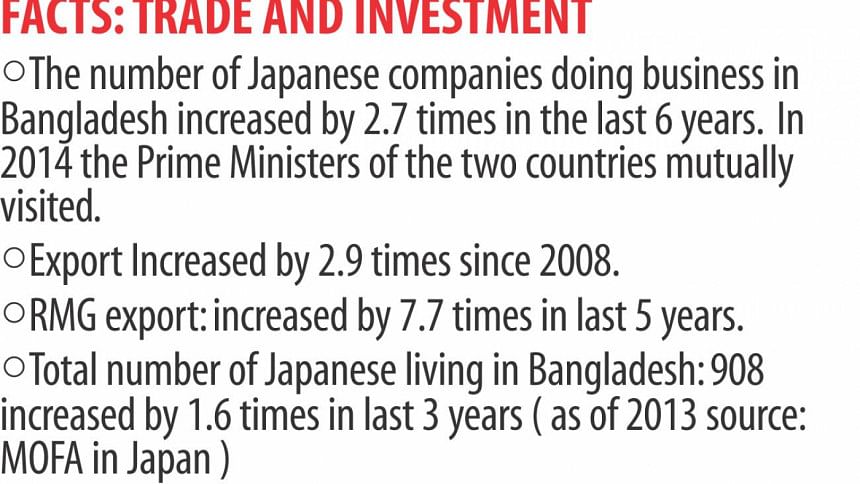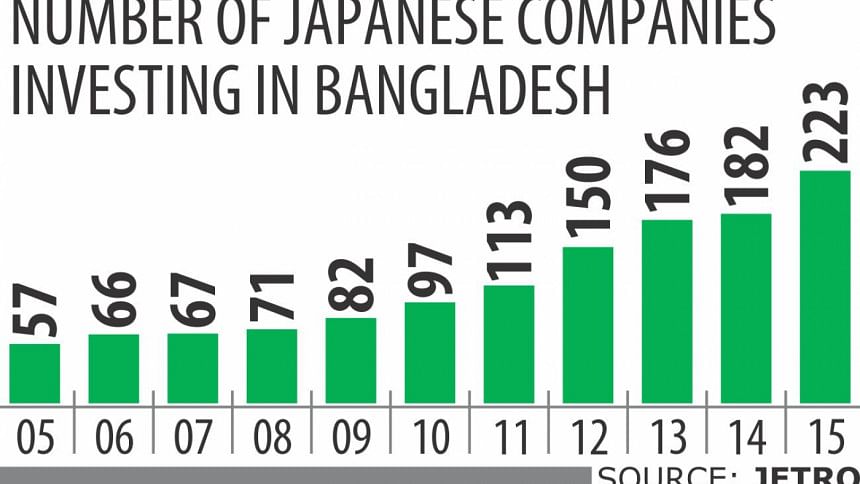JAPAN: An all-weather friend of Bangladesh
Japan recognised the People's Republic of Bangladesh on February 10th, 1972, soon after its independence. Japan was thus one of the earliest countries to officially recognise Bangladesh. Warm friendship has been fostered between the people of the two countries since then and Japan is historically the biggest bilateral development partner of Bangladesh.
Every year, more than a hundred Bangladeshi students receive Japanese Government Scholarships to study in Japan, and Bangladesh is one of the largest recipient countries of these scholarships in recent times. So far 3430 Bangladeshi students have been to Japan under the scholarship since 1955.
As one of the development partners of Bangladesh, Japan has extended support to its effort for economic and social development for the past 43 years since its independence. Japan's basic principles of the assistance towards Bangladesh are accelerating sustainable economic growth with equity and bringing people out of poverty towards becoming a middle-income country.

In order to accelerate an inclusive economic growth, Japan helps develop communication-transportation infrastructures, promote efficient transportation of people and goods and contribute to the mitigation of regional disparities.
To resolve the serious power shortage, which is the greatest impediment for the country's economic development, Japan makes efforts to increase electricity supply through the development of power plants and transmission and distribution grids.
Japan has contributed to Bangladesh's efforts to realise MDGs in such areas as poverty reduction, primary and professional education, maternal and child health, and supply of safe water. For example, maternal and neonatal health, improvement of countermeasure against infectious diseases and the strengthening of health system including enhancement of basic health service quality and quantity are carried out.

In addition, Japan supports Bangladesh to mainstream disaster management and climate change focusing on disaster warning, earthquake countermeasures, and river management.
Economic relations between the two countries are growing. Japanese companies investing in Bangladesh as well as the amount of export (garments, shoes, leather products, etc.) to Japan is increasing. Japan supports Bangladesh's efforts to develop more export oriented industries.

 For all latest news, follow The Daily Star's Google News channel.
For all latest news, follow The Daily Star's Google News channel. 



Comments